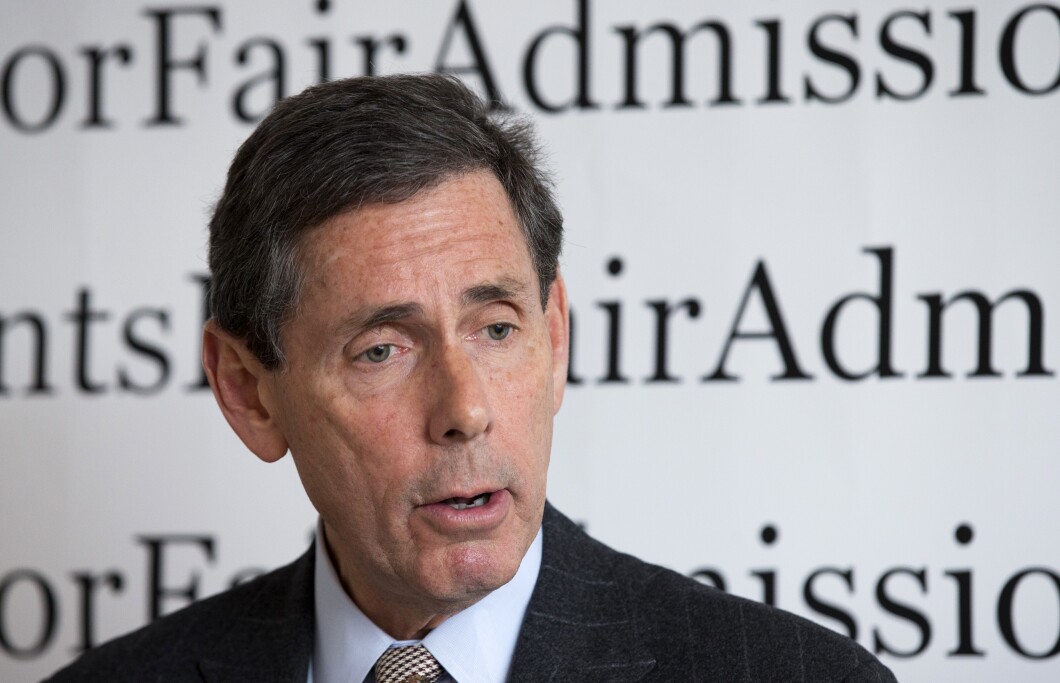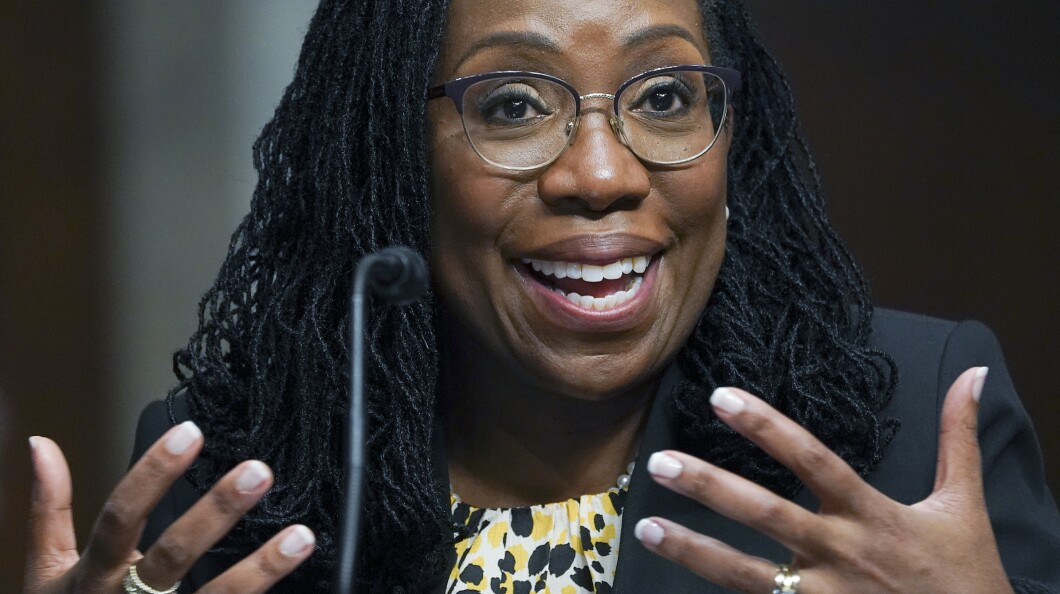
Colleges across the United States are preparing for a future without race-based admissions policies as the Supreme Court will soon decide whether to end decades of affirmative action precedent.
The legal effort was brought to the high court by the conservative group Students for Fair Admissions, which argues that nearly four decades of affirmative action precedent have disproportionately harmed Asian American applicants and that institutions should amend their policies to adopt “race-neutral” standards. The justices will hear two cases Monday over admissions policies at the public University of North Carolina at Chapel Hill and the private Harvard University.
Edward Blum, the 70-year-old head at SFFA and a longtime critic of affirmative action, said the group represents nearly 20,000 students who are asking the high court to overturn its decision in Grutter v. Bollinger, which affirmed the partial use of race in admissions at the University of Michigan in a 5-4 opinion in 2003, so long as it didn’t rely on race as a sole deciding factor.

HOW COLLEGES COURT TOUT ‘DIVERSITY’ EVEN IF SUPREME COURT STRIKES DOWN AFFIRMATIVE ACTION
“The founding principles of our nation’s civil rights laws is the requirement that an individual’s race and ethnicity should not be used to help or harm them in their life’s endeavors,” Blum told the Washington Examiner, adding, “We hope the Supreme Court forbids the use of race and ethnicity in college admissions and that the opinion will begin the restoration of our nation’s constitutional colorblind legal covenant.”
Challengers against the 2003 ruling are hoping that the 6-3 conservative majority, installed by former President Donald Trump‘s three high court nominees who were confirmed with the help of former Senate Majority Leader Mitch McConnell (R-KY), will be willing to apply strict scrutiny to the decades-old affirmative action precedent.
However, critics of SFFA, such as the Leadership Conference Education Fund, allege the conservative group is attempting to quash progressive racial equity efforts and that ruling against affirmative action could lead to diminished diversity not only in universities, but in other sectors such as colleges that offer military ROTC programs.
“One thing is clear — the future of our multiracial democracy is at stake. The civil rights community is united because we know that we are stronger together, even in the face of the so-called Students for Fair Admissions’ — and Ed Blum’s — attacks on affirmative action,” Maya Wiley, the president and CEO of the LCEF, told the Washington Examiner.
Several demonstrations and rallies are planned to happen outside of the high court Monday, including more than 100 students from Harvard and 40 students from Yale University in defense of affirmative action, among other advocacy groups.
Here are the differences between the two cases to be heard Monday:
Students for Fair Admissions v. UNC
As a public university, UNC is bound by the Constitution’s Equal Protection Clause, which prohibits discrimination on the basis of race.
Defending itself against the lawsuit that was initially filed in 2014, UNC argues in a Supreme Court brief for the right to create a diverse environment on campus. However, the university’s counsel notes it is prepared to give “serious and ongoing consideration to race-neutral alternatives” and that it would conform “the most promising strategies for attaining diversity in race-neutral ways” if the justices strike affirmative action.
“On campus, diversity promotes the robust exchange of ideas, fosters innovation, and nurtures empathy and mutual respect. It also looks to the future, equipping students with the tools and experiences necessary for success in the modern world,” the brief argues.
All nine justices will hear arguments in the UNC case first Monday. Newly sworn-in Justice Ketanji Brown Jackson recently completed a six-year term on the Harvard University Board of Overseers and has recused herself from one of the cases due to the conflict of interest, meaning only eight justices will rule over the Harvard case.
Jackson publicly committed to recusing herself during her confirmation hearing in March after several Republican senators on the Senate Judiciary Committee pressed her on the issue.

Students for Fair Admissions v. Harvard
While the two cases being heard by the high court both count SFFA as the plaintiff, the group’s lawsuit against Harvard has drawn the most notoriety.
First filed in 2014, the lawsuit charged the private institution with racial discrimination by deliberately limiting the number of students of Asian descent who are admitted to the Ivy League school.
Although it is not public, the university accepts federal grants that bind it to refrain from racial discrimination under Title VI, meaning it is interpreted under the same scrutiny as the Equal Protection Clause, according to Rachel Moran, a professor of law at the University of California.
After lower courts ruled in Harvard’s favor, citing existing Supreme Court precedent, SFFA appealed to the high court, which agreed to hear the case in January.
The Justice Department argued in a December brief that the pair of cases was a “poor vehicle” for reexamining past affirmative action precedent. “Those decisions have invited colleges and universities to rely on the permissibility of a holistic, flexible approach like Harvard’s as a benchmark in structuring their own admissions policies,” Solicitor General Elizabeth Prelogar wrote.
Jackson’s recusal from the Harvard case likely won’t affect the final rulings that will ultimately be led by the conservative majority. Final separate opinions over the cases will likely come by the summer of next year.
CLICK HERE TO READ MORE FROM THE WASHINGTON EXAMINER
However, the first-ever black woman on the high court’s participation in the UNC case may see her contrast from the ideological principle of colorblindness that conservative justices often attribute to the 14th Amendment’s guarantee that all people will receive “the equal protection of the laws.”
Jackson argued on Oct. 4 that the framers of the 14th Amendment intended it to apply to everyone in a “race conscious way,” a point that drew criticism by some conservative legal scholars and praise by liberal court watchers for her display of so-called “progressive originalism.”





